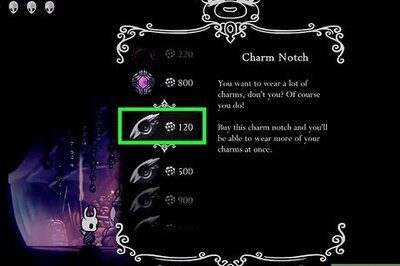
views
A new US study has raised questions about the safety of some forms of birth control pills, finding that women who take certain forms of this contraception have much higher levels of hormones than women who don't.
The study looked at women's levels of progesterone and estrogen, both produced by the ovaries and in levels that naturally vary over the course of the menstrual cycle.
In women who take the pill, these naturally released hormones are replaced by synthetic versions in order to prevent pregnancy, with progesterone replaced by progestin, and estrogen replaced by ethinyl estradiol.
The new study wanted to look at whether these synthetic versions increased a woman's exposure to the hormones compared to what they would be exposed to from their own ovaries.
Previous evidence has already shown that exposure to hormones can affect the risk of breast cancer, the most common type of cancer for American women.
Carried out by the University of Michigan, the study reviewed data from 12 different studies that measured the amount of progesterone and estrogen over the menstrual cycle in women who don't take the pill.
The total levels of progesterone and estrogen in these women were then compared over a 28-day period to the total levels of the synthetic versions of these hormones -- progestin and ethinyl estradiol -- in women who take one of seven commonly prescribed pills.
The information for these synthetic hormones was taken from the package inserts for each different pill.
The authors found that of the seven pills, four more than quadruple progestin exposure compared to the progesterone exposure of women not on the pill, while another was associated with a 40 percent higher level of ethinyl estradiol.
The study's lead author, human evolutionary biologist Beverly Strassmann, stressed that birth control has greatly improved women's lives, but added that it is important to create birth control pills that don't contribute to risk for breast cancer.
"Not enough has changed over the generations of these drugs, and given how many people take hormonal birth control worldwide -- millions -- the pharmaceutical industry shouldn't rest on its laurels," said Strassmann.
The findings also come after Strassmann's previous research looked at menstruation and reproductive biology in the Dogon people of Mali, West Africa.
Dogon women rarely practice birth control, have an average of nine pregnancies, and often breastfeed children to age 2, in contrast to Western women who often have around two children and rarely breastfeed for longer than one year.
Because pregnancy and breastfeeding suppress ovulation, Dogon women have only about 100 menstrual periods during their lifetimes, compared to around 400 periods experienced on average by Westernized women.
"The increased number of menses is associated with increased hormonal exposure and risk for breast cancer," Strassmann said. "It is critically important to know whether hormonal contraception further exacerbates this risk."
The findings can be found published online in the journal Evolution, Medicine, and Public Health.

















Comments
0 comment